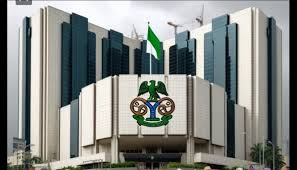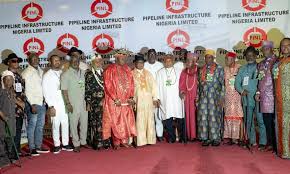Business
Lagos Targets Churches, Mosques In 2012 Tax Drivea
Churches and mosques in Lagos State may now have to “give unto Caeser, what is Caeser’s and render to God, what is God’s,” as the 2012 fiscal regime will now include activities in those religious houses under the state’s tax net.
Besides, tenants will, from January, deduct five per cent of rents payable as withholding tax and remit same into the government’s treasury.
Speaking at the third Lagos State Taxation Stakeholders Conference, held recently in Ikeja, Governor Babatunde Raji Fashola, explained that the new tax regime was scripted to enhance the state’s revenue base and promote effectiveness of governance.
Fashola explained that churches and mosques, who owned buildings used for business purposes, were not exempted from paying taxes to the government because they earn income from such businesses.
He said: “On the churches and the mosque, let us remember that whether it was a church or a mosque, it was first a building. And therefore, it is built with the same building materials that were used to build other private facilities.
“Nobody knows the difference at that time. And therefore, it cannot escape the regulatory law of the state in making building safe, it must comply. It is only when those, who are ordained dedicate the building to the propagation of religion that it becomes a church.
“In the same way, churches own facilities. Churches that run businesses should give something back to the government. Render unto Caesar what is Caesar’s and render unto God what is God’s.”
The governor also said tax should be paid on gifts received by individuals and urged Lagos residents to pay their taxes promptly so that government would have the money to carry out developmental projects.
He, however, appealed to the people to be more tax compliant. “If more people voluntarily pay the right amount of income taxes, the government will find enough money it needs to transform the state,’’ he stated.
On the five per cent withholding tax, Fashola said everybody, who pays rent, is collecting agents for the tax. “Everybody, who pays money to a doctor, lawyer for the services they rendered to him, is our collecting agent for that withholding tax.
“And we expect that they fairly collect, issue receipt and account for them. Once we have all of those documents and records, it should be easy for us at the end of the tax accounting year to set off all of these,” he said.
Fashola said collection of withholding tax would be part of government revenue drive in the New Year. He promised to enforce the payment of the tax. He said withholding tax would be collected on rent, dividend, contract, among others, stressing that in the case of rent, the tenants would serve as the collecting agents of withholding tax from the landlords for the services rendered.
He explained that the only way to make life as good as they are in the other jurisdictions such as Europe was for the people to provide the government with more resources to do so.
“We have the idea, we have signed on to work and really, whether you think we can do it or not, I think our experience and our record in the past four years show clearly that even if you disbelieve what we say, the evidence before you today makes it difficult for you to disbelieve what we have done and it speaks of what we can do if you give us the chance,” he added
Fashola said the role of tax consultants in the internal revenue drive of the state is to track and monitor revenues, payment that you make. “They don’t collect. The bills are still done by public servants now under the Internal Revenue Service.
“But at that time, our government did not know how many accounts it had and it did not know what was paid in. So, the money was there, depending on the benevolence of a bank that decided to be honest. But today, at the close of every business day, Lagos State government can tell you how much it has collected and in which bank it is. That is the energy the consultants have brought,” he said.
Noting that organisations that provided services deserved to be paid, the governor declared, “they have provided service, they have invested in ICT. It is only fair that they be paid. The only issue that can arise is whether or not we are getting a fair deal for the service that they render. But the idea that somebody who rendered service in a free economy should not be paid is alien to me.”
Corporate organisations presented with tax compliance awards included Nigerian LNG, Julius Berger, Coca Cola, Citi Bank Nigeria Limited and Standard Chartered Bank, among others, while private individuals included Chairman of Elizade Motors, Chief Michael Ade Ojo, former Chairman of Punch Nigeria Limited, Chief Ajibola Ogunshola, former Secretary-General of the Commonwealth, Chief Emeka Anyaoku, among others.
Business
NCDMB, Partners Sweetcrude On Inaugural Nigerian Content Awards

The Nigerian Content Development and Monitoring Board (NCDMB), in partnership with a firm, Sweetcrude Ltd., has announced detailed selection criteria for the inaugural “Champions of Nigerian Content Awards”, designed to honor outstanding contributions to local content development in Nigeria’s oil and gas sector.
The Tide learnt that the event, scheduled to hold 21st May, 2025, at the NCDMB’S content tower headquarters in Yenagoa, capital of Bayelsa State, will recognize individuals and organizations that have demonstrated exceptional commitment to advancing Nigerian Content in 2024.
The Tide further gathered that the ceremony will coincide with the Nigerian Oil and Gas Opportunity Fair (NOGOF), which promises to spotlighting industry excellence and contributions to national economic transformation.
A statement by the Board’s Directorate of Corporate Communications and Zonal Coordination says the event has 12 Award Categories, which include, “Nigerian Content Icon of the Year”, “Nigerian Content Lifetime Achievement Award”, “Nigerian Content International Upstream Operator of the year”, and the “Nigerian Content Independent Upstream Operator of the year”.
Others are, “Nigerian Content Midstream Operator of the year”, “Nigerian Content Downstream Operator of the year”, “Nigerian Content International Service Company of the year”, Nigerian Content Indigenous Service Company of the year”, and the “Nigerian Content Innovator of the year”.
Also included are, “Nigerian Content Financial Services Provider of the year”, “Nigerian Content Media Organization of the year”, and “Women in Leadership Award for Promoting Gender Equality and Empowerment”.
According to the NCDMB, the criteria for oil and gas operators will include key and empirical benchmarks such as Production output for crude oil and gas volumes, Compliance with Nigerian Content Plans (NCPs) and Nigerian Content Compliance Certificates (NCCCs).
Other criteria are adherence to NOGICD Act reporting requirements, such as submission of Nigerian Content Performance Reports and Employment & Training Plans.
The Board’s statement added that similar criteria will apply to financial institutions, media organizations, and individuals, ensuring a transparent and merit-based selection process.
“Winners for the Nigerian Content Icon of the Year, Innovator of the Year, and Women in Leadership Award will also be selected based on measurable performance indicators.
“The Advisory Committee of Industry Titans will Oversee the process to uphold the prestige of awards. The Committee consist of distinguished experts set up to oversee nominations and validate winners”, the NCDMB said.
Members of the committee, according to the Board, include: Pioneer Executive Secretary of the NCDMB, Dr. Ernest Nwapa; Secretary-General, African Petroleum Producers Organization, Dr. Omar Farouk; and former Zonal Operations Controller, DPR, Mr. Woke Akinyosoye.
The Statement quoted the Executive Secretary, NCDMB, Engr. Felix Omatsola Ogbe, as emphasizing that the awards aim to becoming the oil and gas sector’s equivalent of the Oscars, celebrating genuine impact rather than mere participation.
“This recognition is reserved for those who have gone beyond compliance to drive tangible growth in Nigerian Content.
“With a focus on credibility, compliance, and measurable impact, the Champions of Nigerian Content Awards is poised to set a new standard for excellence in Nigeria’s energy sector”, the NCDMB Executive Scribe said.
By: Ariwera Ibibo-Howells, Yenagoa
Business
Nigeria’s Debt Servicing Gulped N696bn In Jan – CBN

Nigeria’s apex Banking institution, Central Bank of Nigeria (CBN), has declared that Federal Government’s debt servicing increased to N696billion in January 2025.
The CBN’s recently published Economic Report revealed a precarious fiscal position, which worsened in January 2025 as debt servicing obligations exceeded total retained revenue by a wide margin.
According to the report, the Federal Government’s debt servicing obligations for the month stood at N696.27bn, while total retained revenue amounted to only N483.47bn, indicating that debt service alone consumed about 144 per cent of all government earnings.
This development highlights the growing debt burden and dwindling fiscal space facing Africa’s largest economy.
According to the report, despite slight improvements in some revenue categories, the retained earnings were grossly inadequate to cover obligatory debt repayments, exposing the government’s continued reliance on borrowing to meet basic obligations.
The report further revealed that retained revenue in January 2025 only recorded a marginal 0.89 per cent increase when compared with the N479.21bn generated in the corresponding month of 2024.
”FGN retained revenue declined in the review period, owing largely to lower receipts from Federal Government Independent Revenue and FGN’s share of exchange gain.
“At N0.48tn, provisional FGN retained revenue was 69.19 and 70.40 per cent below the levels recorded in the preceding period and monthly target, respectively”, it revealed.
While this points to stagnation rather than growth, the marginal rise was wiped out by the overwhelming debt service obligations.
The retained revenue components showed that the Federation Account contributed N167.69bn, while the VAT Pool Account delivered N90.73bn.
By: Corlins Walter
Business
Wage Award: FG Plans 5 Months Arrears Payment

The Federal Government has announced plans to commence the payment of the outstanding N35,000 wage award arrears owed workers in the Federal Civil Service.
A statement issued by the Office of the Accountant-General of the Federation (AGF), which was signed by the Director of Press and Public Relations, Bawa Mokwa, said the outstanding arrears will be paid in instalments, with workers set to receive N35,000 per month for five months.
It clarified that the first tranche of the wage award arrears would be released immediately after the April salary payment.
“The wage award arrears was not paid with the April 2025 salary; it will come immediately after the salary is paid”, the statement read.
The Federal Government had earlier disbursed wage awards to federal workers for five months as part of efforts to cushion the impact of economic reforms. However, five months’ arrears remained unpaid.
The AGF office further reiterated the government’s commitment to fully implementing all policies and agreements relating to staff remuneration and welfare, noting that such efforts were geared towards enhancing productivity and operational efficiency across ministries, departments, and agencies.
The N35,000 wage award was introduced in 2023 as a palliative measure to support workers following the removal of the petrol subsidy and other economic adjustments.
In January this year, the Federal Government assured workers that it would clear the arrears of the N35,000 wage award, just as it also said the government had resumed the payment of the wage award.
The government also reiterated its commitment to addressing issues in the National Minimum Wage agreement reached with the Organised Labour in 2023.
The Minister of Labour and Employment, Nkeiruka Onyejeocha, had disclosed the government’s commitment towards implementing agreements with trade unions during separate meetings with the leadership of the Trade Union Congress and Congress of University Academics, in Abuja.
The Nigeria Labour Congress had criticised the Federal Government over the delay in the payment of the minimum wage for certain workers in the federal civil service.
Also, the Federal Government had earlier blamed the delay in payment on the prolonged approval of the 2025 budget.
By: Corlins Walter
-

 News9 hours ago
News9 hours agoOver 80 Army captains to sit for 2025 promotion exam in Benin
-

 Politics3 hours ago
Politics3 hours agoLP Crisis, Poetic Justice For Betrayal – Ex-presidential Aspirant
-

 Sports9 hours ago
Sports9 hours agoAfroBasket: D’Tigers To Play Against Tunisia, Cameroon, Madagascar
-

 Oil & Energy3 hours ago
Oil & Energy3 hours agoStakeholders Laud PINL For Oil Pipeline Safety
-

 News4 hours ago
News4 hours agoHYPREP Commits To Prioritising Workers’ Welfare, Job Creation
-

 News9 hours ago
News9 hours agoS’Court Holds Valedictory Session For Late Justice Ogwuegbu, Wed
-

 Politics3 hours ago
Politics3 hours agoTinubu Changing Leadership Narrative In Nigeria – Wike
-

 Sports9 hours ago
Sports9 hours agoLa Liga: Ancelotti Hails Potential Successor

